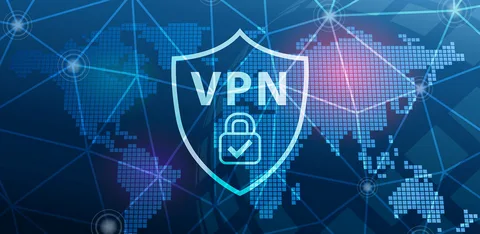
Understanding the Importance of Network Security in Today’s Digital Age
Introduction
In an era where digital transformation is reshaping the way businesses operate, the importance of network security cannot be overstated. As organizations increasingly rely on technology to drive growth, streamline operations, and engage customers, they also expose themselves to a multitude of cyber threats. Effective network security measures are essential for protecting sensitive data, maintaining customer trust, and ensuring business continuity. One of the key components of a robust network security strategy is the implementation of Firewall Management Services, which play a critical role in safeguarding organizational networks from unauthorized access and cyber attacks. This article delves into the importance of network security in today’s digital age, highlighting the significance of firewall management services.
The Growing Threat Landscape
Increasing Cyber Threats
Cyber threats are becoming more sophisticated and prevalent, impacting organizations of all sizes. Key statistics that underscore this trend include:
- Rising Frequency of Attacks: According to cybersecurity reports, businesses experience an average of 1,000 attempted cyber attacks every hour.
- Cost of Data Breaches: The average cost of a data breach has climbed to $4.24 million, according to IBM’s 2021 Cost of a Data Breach Report.
- Diverse Attack Vectors: Threats can come from various sources, including malware, ransomware, phishing, and insider threats, making comprehensive security measures vital.
Shift to Remote Work
The COVID-19 pandemic accelerated the shift to remote work, increasing the attack surface for cybercriminals. Employees accessing company resources from home networks or unsecured devices can inadvertently expose organizations to risks. This shift emphasizes the need for robust network security protocols that protect sensitive information, regardless of where employees are located.
Why Network Security Matters
1. Protection of Sensitive Data
Organizations handle vast amounts of sensitive data, including customer information, financial records, and intellectual property. Network security is essential for:
- Preventing Data Breaches: Effective security measures help prevent unauthorized access to sensitive data, protecting organizations from potential breaches that could lead to financial loss and reputational damage.
- Compliance with Regulations: Many industries are subject to regulations (e.g., GDPR, HIPAA) that mandate strict data protection measures. Robust network security helps ensure compliance and avoid costly penalties.
2. Maintaining Business Continuity
Cyber attacks can disrupt business operations, leading to downtime and loss of productivity. Strong network security measures contribute to:
- Minimizing Downtime: By implementing proactive security measures, organizations can quickly identify and mitigate threats, reducing the risk of prolonged downtime.
- Ensuring Operational Resilience: A secure network enables businesses to maintain operations even in the face of cyber threats, ensuring service continuity for customers.
3. Building Customer Trust
In today’s digital landscape, customers are increasingly concerned about their data privacy and security. Organizations that prioritize network security can:
- Enhance Customer Confidence: Demonstrating a commitment to data protection fosters trust among customers, encouraging loyalty and repeat business.
- Differentiate from Competitors: Businesses that implement robust security measures can differentiate themselves in the market, appealing to security-conscious consumers.
The Role of Firewall Management Services
What Are Firewall Management Services?
Firewall Management Services involve configuring, monitoring, and maintaining firewalls to protect an organization’s network from unauthorized access and cyber threats. These services are a fundamental component of an effective network security strategy.
Importance of Firewall Management Services
- Proactive Threat Detection: Firewall management services provide continuous monitoring of network traffic to identify and block suspicious activities before they lead to significant security incidents.
- Policy Enforcement: These services help enforce security policies across the organization, ensuring that only authorized users have access to sensitive information and resources.
- Incident Response: In the event of a security breach, effective firewall management allows organizations to quickly respond to threats, minimizing potential damage and ensuring business continuity.
- Comprehensive Reporting: Regular reporting on firewall activity and security incidents provides valuable insights, allowing organizations to make informed decisions about their security posture.
- Compliance Assurance: Many regulatory frameworks require organizations to implement specific security measures, including firewalls. Firewall management services help ensure compliance with these requirements.
Best Practices for Implementing Network Security
1. Conduct a Risk Assessment
Organizations should regularly assess their network security posture to identify vulnerabilities and potential threats. This assessment should include:
- Identifying Critical Assets: Determine which data and systems are most critical to the organization’s operations.
- Evaluating Threats: Analyze potential threats and vulnerabilities that could impact those critical assets.
2. Implement Layered Security Measures
Network security should not rely solely on firewalls. A multi-layered approach that includes various security measures, such as:
- Intrusion Detection Systems (IDS): These systems monitor network traffic for suspicious activities and provide alerts.
- Endpoint Protection: Protect devices connected to the network from malware and other threats.
- Regular Software Updates: Keep software and systems updated to protect against known vulnerabilities.
3. Educate Employees
error is a leading cause of security breaches. Organizations should invest in training employees on:
- Security Best Practices: Educate staff on how to recognize phishing attempts and other common threats.
- Data Handling Procedures: Provide guidelines on securely handling sensitive data to minimize risks.
4. Regularly Review Security Policies
Organizations should regularly review and update their security policies to ensure they remain effective against emerging threats. This includes:
- Conducting Security Audits: Regular audits can help identify weaknesses in security practices and inform necessary adjustments.
- Staying Informed on Trends: Keep up-to-date with the latest cybersecurity trends and threats to adapt security measures accordingly.
Conclusion
As businesses navigate the complexities of the digital age, the importance of network security becomes increasingly evident. With the growing threat landscape and the shift to remote work, organizations must prioritize robust security measures to protect sensitive data, maintain business continuity, and build customer trust. Firewall Management Services play a crucial role in this strategy, providing essential protection against unauthorized access and cyber threats. By implementing effective network security practices, organizations can enhance their resilience against cyber attacks and secure a competitive advantage in the marketplace.





